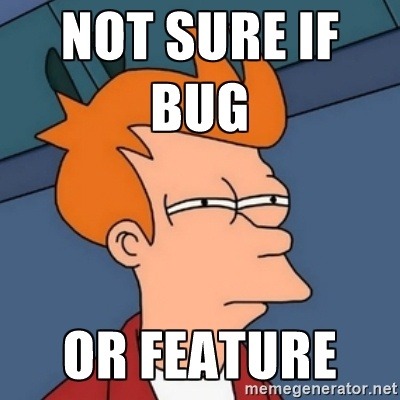Category: Uncategorized
What are some sweet ways to welcome a new Quoran?
Why, McKayla, you seem to have A2A’d me on this. I’ll take the compliment!
These are the things I’ve done:
- Follow them. To a new Quora user, with few followers, that’s pretty meaningful.
- Comment on their answers, positively, constructively, and critically. Which is always a good thing to do.
- Upvote them, and upvote them often.
- Say, out loud, Welcome to Quora.
- @-mention them in your answers, as a good contributor to the topics you’re both interested in.
- Suggest they should interact with other Quora users that they will find interesting.
- Suggest to them how they can deal with the challenges of the forum, such as moderation or UX.
- Embrace them, as a fellow member of your tribe.
What is a fetish for being bitten called?
I draw attention to Nick Nicholas’ answer to What is it called when you get aroused by watching people die? as my credentials for answering this.
Especially my line:
Is not knowing shit about Classical languages a prerequisite for sexologists?!
It is, and I’m not finding the bite fetish in Aggrawal’s exorbitantly misspelled listing of 500-odd paraphilias.
Dacnolagnophilia, “bite horny obsession” is somehow a word for lust murder. God knows why. Dacnomania shows up at least in Italian as obsessive biting. And if sexologists did know shit about Classical languages, the word for a fetish for biting would be dacnophilia.
A fetish for being bitten? Greek doesn’t quite do that with the one stem, but I would go sideways, and use dēctophilia, “love of biters”.
But neither dacnophilia not dectophilia seem to have been used by anyone. After all, not knowing shit about Classical languages is a prerequisite for sexologists…
EDIT: Alberto Yagos has it: Odaxelagnia – Wikipedia
What is the best way to get knowledge on wide variety of topics. Do we have any website which has random topics as topic of the day?
Wikipedia has served that purpose for me. Both through its various Did You Knows for the day on its homepage, and by me following link after link that tickles my fancy.
What work jargon do you often use in daily life?
Often? I dunno, but I’ve certainly caught myself using use case rather more often than I should outside of work. It’s such a slippery term in IT, it’s very easy to overgeneralise.
I get some mileage out of business plan too, mainly as something that institutions all around me don’t seem to have articulated. I think ROI (Return On Investment) has come out my lips once or twice.
From my time in linguistics, etic vs emic distinction was something of a party piece. That one’s harder to trot out in a non-linguist context.
My word of the month has been hegemony; I wish it was work jargon.
Paranoia about notifications fail
Archie D’Cruz wrote on How can I find out if I have been mentioned in an answer?
There has been a months-long bug with Notifications, which means it’s become something of a lottery as to when you get informed about when you get tagged in an answer.
…
If you’re actually looking for bad news, it’s that it’s still impossible to tell when you’ve been mentioned in a comment if you don’t get notified. For now, comments remain part of the dark underground.
Now, this is paranoid thinking. Of course it is.
But there’s been a whole barrage of UX changes recently, that have deprecated interaction between users on the platform.
Amirite?
And this unpredictability of notifications of @-mentions has been in place for months. It got several mentions on the late, lamented Rage Against Quora.
So…

Which Quora users are authors or work in book publishing?
How many of you Quorans wrote books and what are their titles?
One academic text, a translation and commentary of a mediaeval Greek poem.
- Nicholas, N. & Baloglou, G. 2003. An Entertaining Tale of Quadrupeds: Translation and Commentary. (Records of Western Civilization) New York: Columbia University Press. 557 pp.
One introduction to the Lojban language:
- Nicholas, N. & Cowan, J.C. (eds) 2003. What is Lojban? / .i la lojban. mo. Fairfax (Va.): Logical Language Group. 174+iii pp.
Two translations of Shakespeare into Klingon:
- Shakespeare. W. 2001. paghmo’ tIn mIS. Tr. Nicholas, N. [Translation of Much Ado About Nothing into Klingon.] Flourtown (Pa.): Klingon Language Institute. 199+xii pp.
- Shakespeare, W. 2000. The Klingon Hamlet. Tr. Nicholas, N. & Strader, A. [Translation of Hamlet into Klingon; revised.] New York: Pocket Books. 219+xvi pp.
Who is Dimitris Almyrantis?

Dimitris is a Greek Quora user, who is currently a first year university student in Scotland. His age should be incidental, and as far as I am concerned, it is.
He has an astonishing amount of erudition about European and Middle Eastern history. Not the superficial kind, of rattling off facts and names: the deep kind, of drawing comparisons and motivations and conclusions.
I don’t always agree with where he goes, and he’d prefer it that way: it annoys him when people say they agree where they underlyingly don’t. I do agree with him a lot of the time, for things I know about, and I learn much from him, for things I don’t. He is an asset. He is what this site is for.
Why didn’t Greek develop into a language family like Latin (Romance languages) after the fall of Rome?
Why does every international organization always use the French language for its second name?
The ascendancy of English as a world language of diplomacy is after WWII. Before WWII, it was French, and keeping French around as the second world language in international organisations (including the Olympic movement) is mostly legacy.
There are countries where French gets you further than English, but those countries now are not European countries (other than France, Wallonia, Luxembourg and Suisse Romande); they are the African Francophonie.